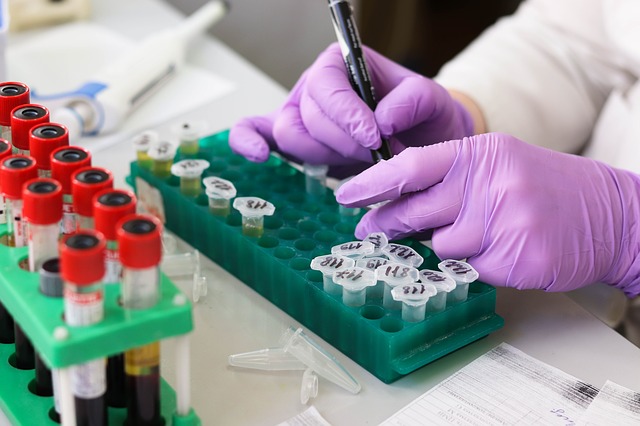A new type of blood test for breast cancer – a “liquid biopsy” – could be a game-changer for earlier detection and more precise treatment, according to a study by a team of Arizona researchers.
Called TARDIS, the test could be as much as 100 times more sensitive than other blood-based cancer monitoring tests, according to the study.
Published in the TScience Translational Medicine journal, the work is a major step forward in improved breast cancer diagnosis. The test could help avoid unnecessary surgeries and enable physicians to more precisely and easily monitor disease progression with a simple blood test.
“This has enormous implications for women with breast cancer. This test could help plan the timing and extent of surgical resection and radiation therapy after patients have received preoperative therapy,” said Dr. Barbara A. Pockaj, one of the senior authors of the study and a surgical oncologist who specializes in breast and melanoma cancer patients at Mayo Clinic in Arizona.
TGen, Mayo teamed up to find breakthrough
The breakthrough was discovered by Pockaj and a team of researchers led by the Phoenix-based nonprofit medical research group, TGen, and the Mayo Clinic in Arizona with contributions from the Biodesign Institute at Arizona State University.
Following further clinical testing and trials, TARDIS could someday be routinely used for monitoring patients during cancer treatment, and discovering when patients are essentially cured and cancer free, the study authors said.
TGen is now evaluating the best partners to work with to automate and scale TARDIS so it can be made available broadly to benefit patients.
Test specifically identifies small fragments of cancer DNA
TARDIS identifies and quantifies small fragments of cancer DNA circulating in a patient’s bloodstream, known as circulating tumor DNA or ctDNA. In the study, TARDIS detected ctDNA in as low as 2 parts per 100,000 in patient blood.
Eradicating unnecessary surgeries
Researchers said it is more sensitive than the current method of using imaging to determine a patient’s response to pre surgery drug therapy.
“By precisely measuring ctDNA, this test can detect the presence of residual cancer, and inform physicians if cancer has been successfully eradicated by treatment,” said a senior author of the study, Dr. Muhammed Murtaza, Assistant Professor and Co-Director of TGen’s Center for Noninvasive Diagnostics and a member of the Research Faculty at Mayo Clinic in Arizona.
Unlike traditional biopsies, liquid biopsies can be performed repeatedly, as often as needed, to detect a patient’s disease status.
Together with imaging and tissue-based predictive biomarkers, ctDNA is rapidly becoming a useful diagnostic test to determine individualized decisions about additional treatment, Dr. Murtaza said.
“The results of these tests could be used to individualize cancer therapy avoiding overtreatment in some cases and under treatment in others,” he said. “The central premise of our research is whether we can develop a blood test that can tell patients who have been completely cured apart from patients who have residual disease.”
This story was originally published at Chamber Business News.




